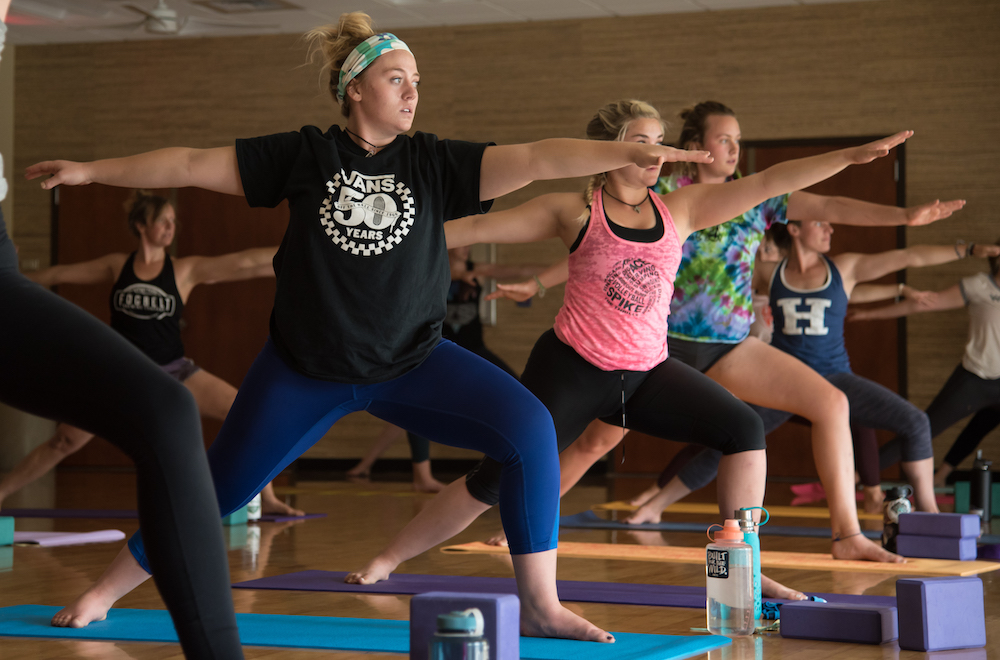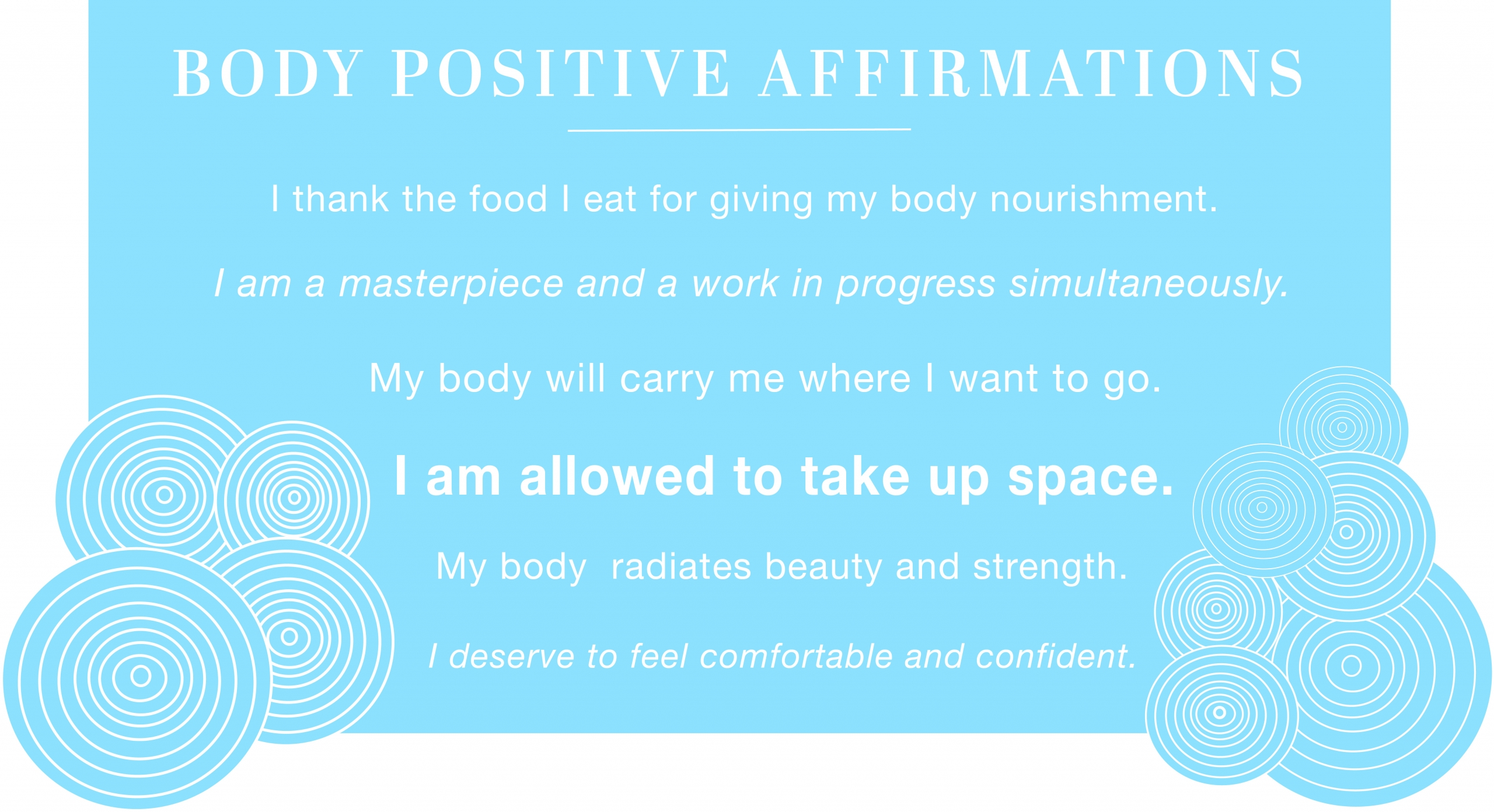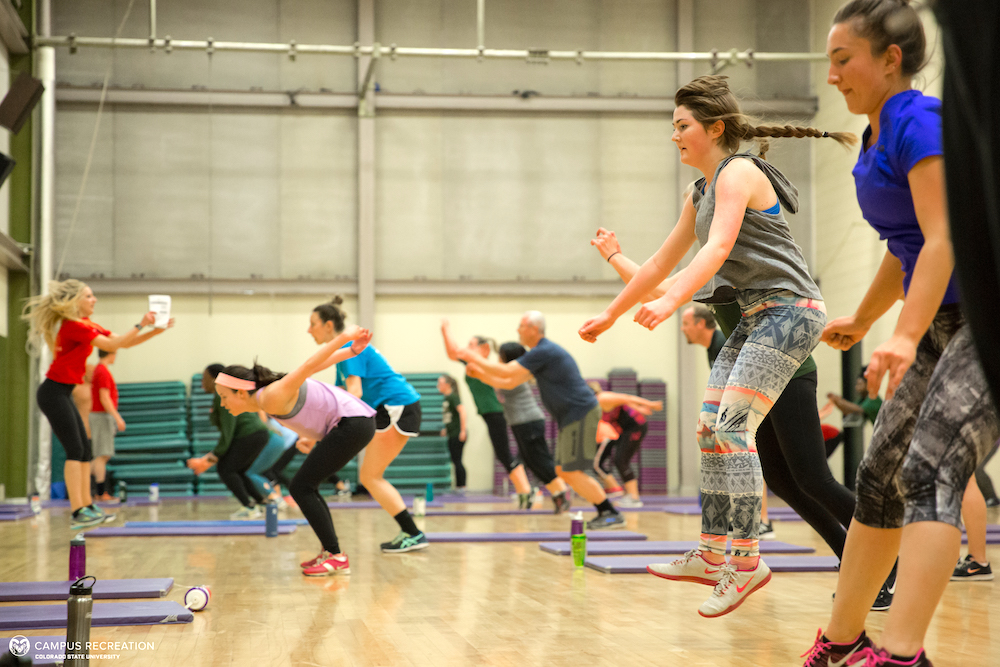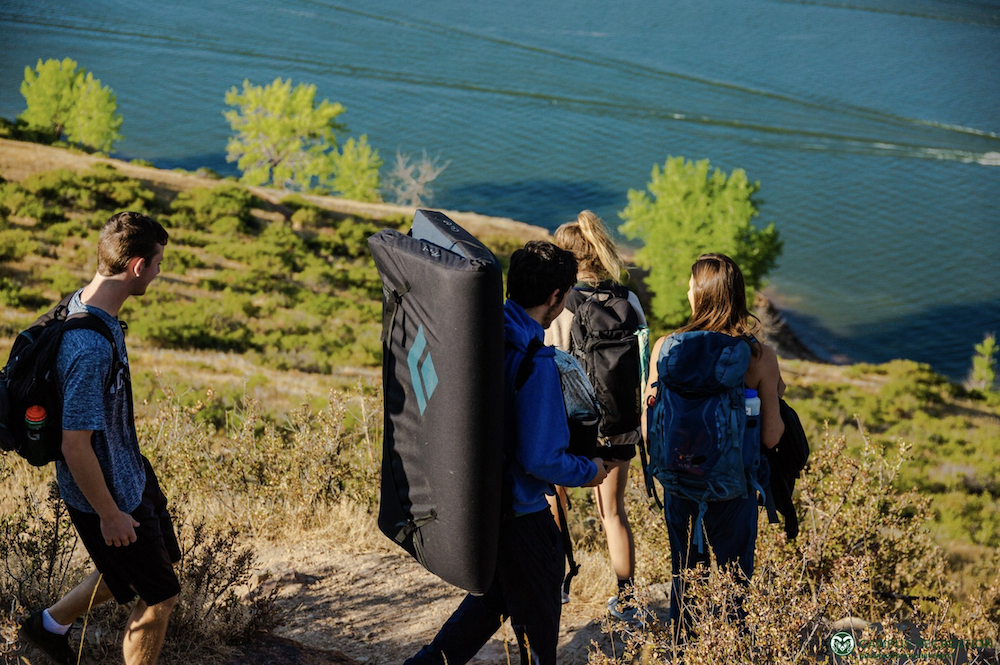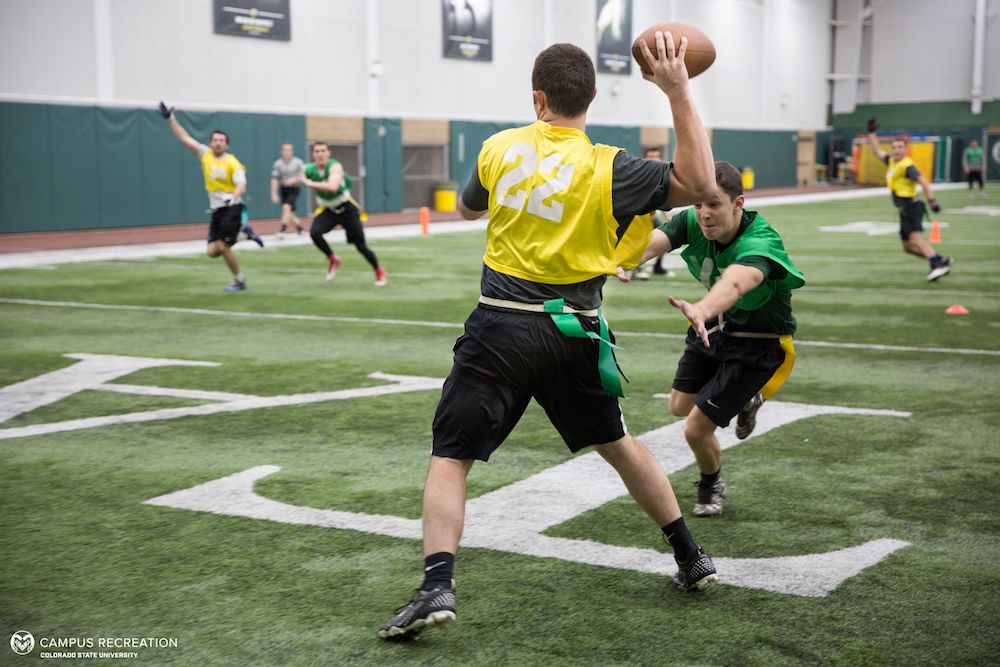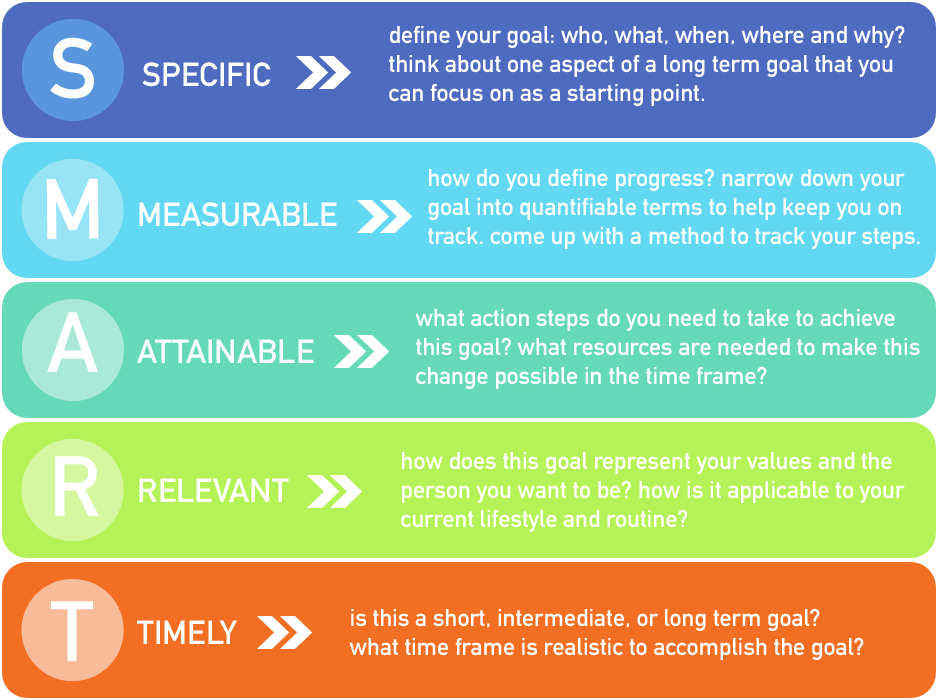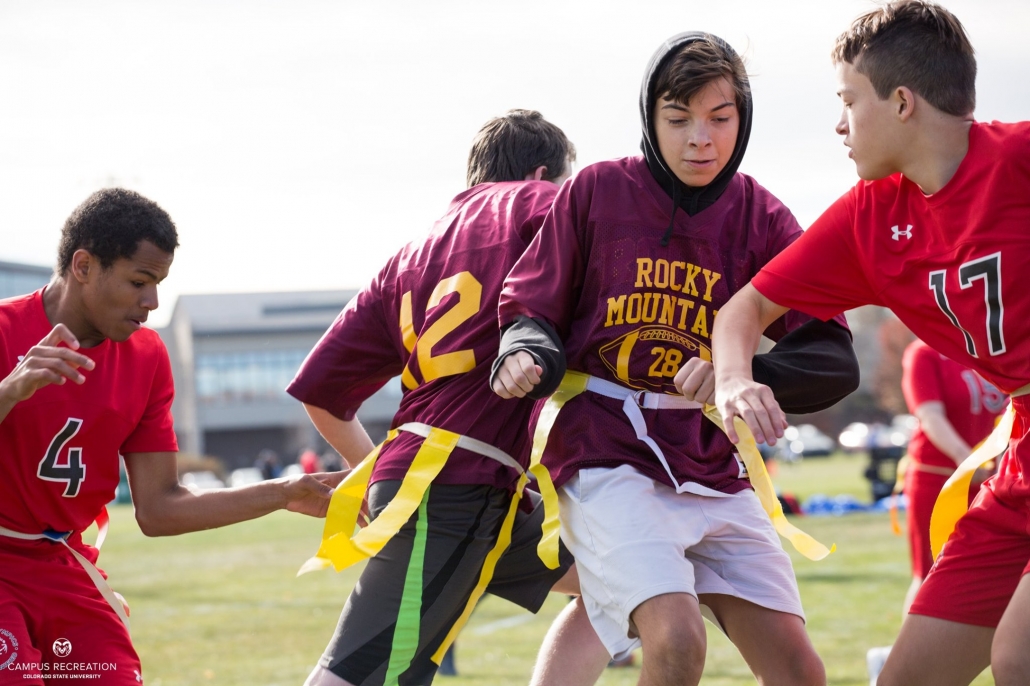Officiating intramural league games is Campus Rec employee Tyler Peabody’s passion. Tyler’s third semester as an Intramural Sports Official was highlighted the first weekend of 2020 when he earned the opportunity to officiate the Regional Flag Football Tournament held at CSU in October. A selection of top student officials from around the country were given this opportunity to officiate the final rounds of tournaments through NIRSA, including the championship game. The opportunity is commendable—proving the dedication and commitment Tyler shows to the position on and off the field.
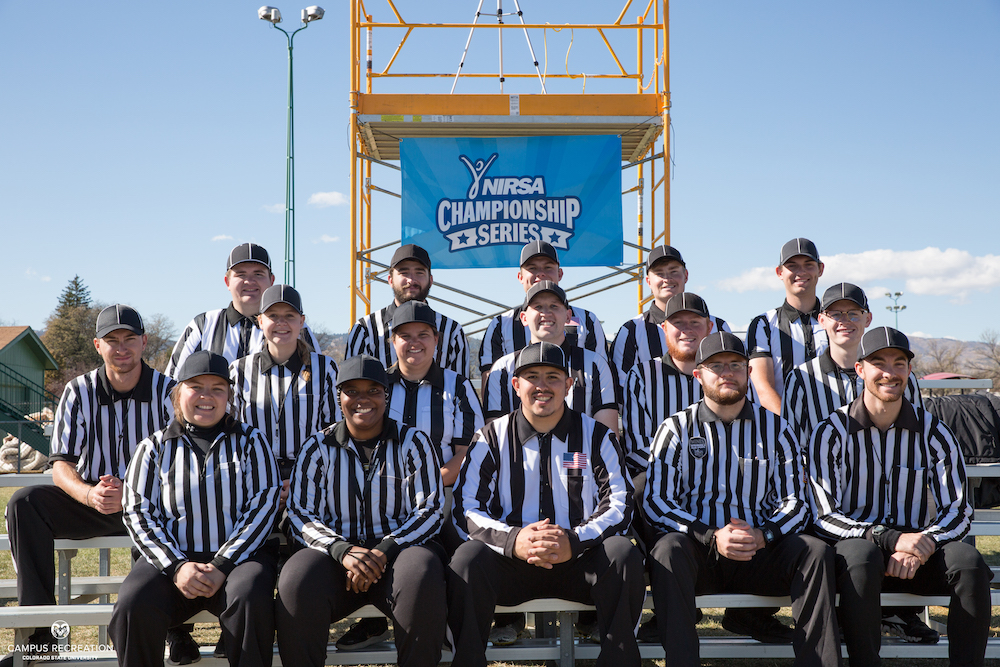
Officials for the NIRSA Region V Flag Football tournament in October.
Upon arrival at the tournament at Round Rock, the group completed a number of training sessions reviewing game footage and case plays. This training prepared Tyler for a long weekend of officiating 10 games on Friday and Saturday and the final championship game on Sunday.
Thrown into a whirlwind of the best teams and officials in one place, the environment was certainly higher stakes than local games. Many of the teams in final rounds have coaches and a more rigorous practicing schedule, which is more intense than most intramural teams. Given the magnitude of regional tournaments, officials are understandably held to a higher standard as well.
The increased competitiveness of the games wasn’t a source of nerves for Tyler, even during moments of uncertainty. “It’s easier to officiate because the level of play is higher, so the athletes are usually better,” said Peabody. “When there is a penalty, it’s a lot easier to see than a typical game at the Rec.”
“My favorite part is the relationships I’ve made with other players and officials. You start to get to know them well and build mutual respect for each other.”
Though officials’ job is to keep a hawkeye on the game at all times, they are simultaneously assessed in their own positioning and communication. Officials learn that good practice takes much more than remaining on the margins—staying actively engaged with the players and communicating with them between plays is crucial. As Tyler has learned, there is an emphasis on having a strong on-field presence and maintaining two-way communication between both parties. Players having a sense of trust and respect for Tyler’s calls and the reasoning behind them, were essential to his success while officiating.
“I learned that I am never as good, or bad, as I think I am,” he reflects. “There were games where I thought I absolutely killed it and I got the harshest criticism from the clinicians. Other games I thought I did so poorly, and they thought it was the best game I officiated all day. I learned to just stay level headed and never get too down or be too cocky.”
Tyler is a mathematics major with a concentration in education, looking forward to graduating early in Fall 2020. A correlation, he believes, exists between math and officiating which allows him to seamlessly transfer certain skill-sets on and off the field. Many of the logical and problem-solving skills are present in solving equations and analyzing plays during games.
“In math, you need to take what you know and apply it in a logical fashion to the problem you are working on. In officiating, you need to understand rules, definitions, and case plays from the rulebook. Then you need to apply all of these ideas while you’re on the field.”
Tyler credits his position at Campus Rec to helping him build a network of connections with players and other officials on campus. “My favorite part is the relationships I’ve made with other players and officials. You start to get to know them well and build mutual respect for each other.”
Looking ahead, Tyler hopes to continue officiating flag football, basketball, and youth tackle. He is candid about his advice for officials who are just starting out: “Don’t be afraid to mess up and trust your instincts. You want to make the games fun and keep them under control, so don’t second guess yourself!”
